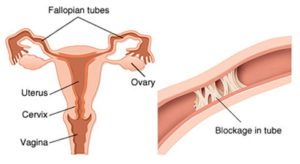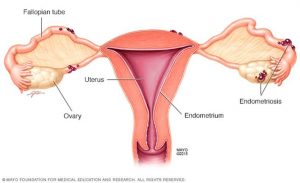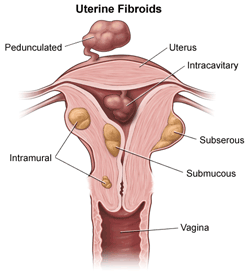Infertility is defined as a couple being unable to conceive after 12 months of regular unprotected sex, or if you can’t carry a pregnancy to term.
Female Infertility Factors
The most common infertility factors in women are:
- Age
- PCOS (polycystic ovary syndrome)
- Blocked or damaged fallopian tubes
- Endometriosis
- Miscarriage
- Fallopian tubes
Age
A woman’s age is the single most important factor affecting your fertility and whether you will have a baby.
Women are born with all the eggs they will have. . Research shows female fertility declines slightly at 30, with a significant decline in your late 30s and early 40s. As you get older, your egg quality declines. You have a higher chance of miscarriage, or your baby having a genetic abnormality like Down syndrome.
Understanding how age affects fertility means you might decide to talk to your partner or doctor about having a baby sooner rather than later. If it’s not the right time for a baby, you might want to consider freezing some eggs for use down the track.
While there is no doubt age is a factor, IVF can help increase the chances of pregnancy as women get older.The monthly chance of conception decreases from 20% for women aged 30 to 5% for women aged 40.
Polycystic Ovary Syndrome (PCOS)
PCOS is a hormonal condition affecting up to 1 in 5 women of childbearing age.
Polycystic ovaries mean lots of cysts are appearing on the ovaries. PCOS affects hormones – women produce higher levels of insulin and testosterone which can lead to one or more symptoms like:
- Irregular periods
- Excess hair growth (usually on the face, stomach or back)
- Acne
- Weight gain
- Mood problems
- Fertility issues.
The cause of PCOS is unknown; it can be genetic or result from lifestyle and environmental factors.
How is PCOS Diagnosed?
PCOS is usually diagnosed using ultrasound, blood tests and a review of medical history.
For a PCOS diagnosis, most women need to meet at least 2 of the following criteria:
- The ovaries are polycystic because 12 or more follicles are visible on one ovary, or one or both ovaries have increased in size
- There are high levels of ‘male’ hormones (androgens) in the blood, and associated symptoms like excess hair growth or acne
- Irregular or no periods (menstrual dysfunction).
What is the Difference Between PCO and PCOS?
PCO refers to having polycystic ovaries that can be identified via ultrasound. Whereas PCOS is a syndrome, where you experience 2 of the 3 symptoms outlined above. The names are similar, PCO does not affect fertility like PCOS. PCO affects up to a third of women of childbearing age and is often not diagnosed as there are no other symptoms.
How does PCOS Affect Fertility?
If you are diagnosed with PCOS, you may have problems having a baby. Irregular periods can affect ovulation, so it’s harder to know when to try to get pregnant, and means fewer chances than if you had a regular cycle. Research has also found that the hormones that control appetite and hunger may not be regulated as effectively with women with PCOS. It means that some women are more likely to gain weight and may have trouble losing weight.
What to do After a PCOS Diagnosis
Treatment options to help you have a baby can include:
- Reducing your BMI through weight loss
- Drugs to induce ovulation, such as Clomid
- Insulin-sensitising medications.
- IVF or another assisted reproductive treatment.
Blocked or Damaged Fallopian Tubes
Fallopian tubes connect your ovaries to your uterus. They have 20-25 finger like structures on their ends that hover just above the ovaries and work to collect mature eggs when they are released. It is in the fallopian tubes that fertilisation of the egg will take place.
If your fallopian tubes are damaged or blocked, it may stop sperm from reaching an egg. Blocked or damaged tubes can be caused by:
- A blockage from birth
- Accidental damage from surgery
- Infection
- Having your tubes tied (tubal ligation surgery).
Endometriosis
Endometriosis occurs when the lining of the uterus (the endometrium), starts growing outside the uterus which causes scar tissue. Endometriosis causes infertility in different ways. If the endometriosis damages the tubes and the ovaries then this will significantly reduce the woman’s ability to conceive. This will significantly alter the movement of the egg and sperm. The cause of endometriosis isn’t entirely known and can vary between women. We do know that if you have a close relative with endometriosis, you’re up to ten times more likely to have it.
Endometriosis is a common condition – it can affect up to one in ten women at some point from their first period to menopause. A third of women with endometriosis may experience fertility issues, but treatment is available.Even if the tubes and ovaries are not damaged then the endometriosis can affect the movement of sperm, egg pick up by the tube, egg fertilisation, embryo growth and implantation.
What are the Symptoms of Endometriosis?
Some women experience incredibly painful periods, while others may not discover they have endometriosis until they have difficulty when they try to have a baby.
Common symptoms include:
- Painful periods
- Premenstural bleeding
- Pelvic pain
- Pain during sex.
If your fertility specialist suspects you have endometriosis, a laparoscopy can be performed to confirm the diagnosis.
Will Endometriosis Affect my Fertility?
About 30% of women with endometriosis will experience infertility, likely due to:[4]
- Scarring of the tubes or ovaries
- Egg quality being affected
- Embryo implantation issues due to damage to the uterus.
Not all women with endometriosis experience infertility. Some women with endometriosis will have no trouble conceiving naturally and having a successful pregnancy.
Can Endometriosis be Treated?
Yes. Depending on the type and severity of your endometriosis, treatment may include:
- Some simple medication
- A laparoscopic surgery to remove the endometriosis. Many women conceive naturally after the surgery, but IVF is also a common option if infertility continues.
Miscarriage
A Miscarriage is when a pregnancy ends on its own before a woman has been pregnant for 20 weeks. It’s most likely to happen in the very early stages of the pregnancy and is uncommon after 10 weeks. Many women who have a miscarriage go on and have a baby naturally.
If a woman has 2 or more miscarriages, without any successful pregnancies in between, this is called recurrent miscarriage. If you have experienced recurrent miscarriage, its important to talk to a fertility specialist about potential causes.
What Causes a Miscarriage?
Common causes of Miscarriage include:
- Genetic or chromosomal abnormality in the embryo
- An abnormal uterus
- Hormonal disorders
- Infections and diseases
- lifestyle factors such as smoking, alcohol or drugs
- Age (women aged over 40 have a higher chance of miscarriage than having a live birth).
Sometimes there’s no clear reason why you have had a miscarriage.
Coping with Miscarriage
In the instance of a miscarriage occurring during treatment, Monash IVF counsellors are on hand to support you through this difficult time. Our counsellors are experienced at dealing with miscarriage and will offer unlimited support and follow up.
Fibroids
Fibroids are benign growths or lumps of muscle tissue that form on the walls of the uterus. Less than 3% of  women experience infertility because of fibroids. Most women don’t experience any symptoms of fibroids, but the most common are:
women experience infertility because of fibroids. Most women don’t experience any symptoms of fibroids, but the most common are:
- Abnormal bleeding
- Frequent urination
- Pressure or pain (due to size and position of the fibroid).
Treatment options are usually hysteroscopy or laparoscopy surgery.
